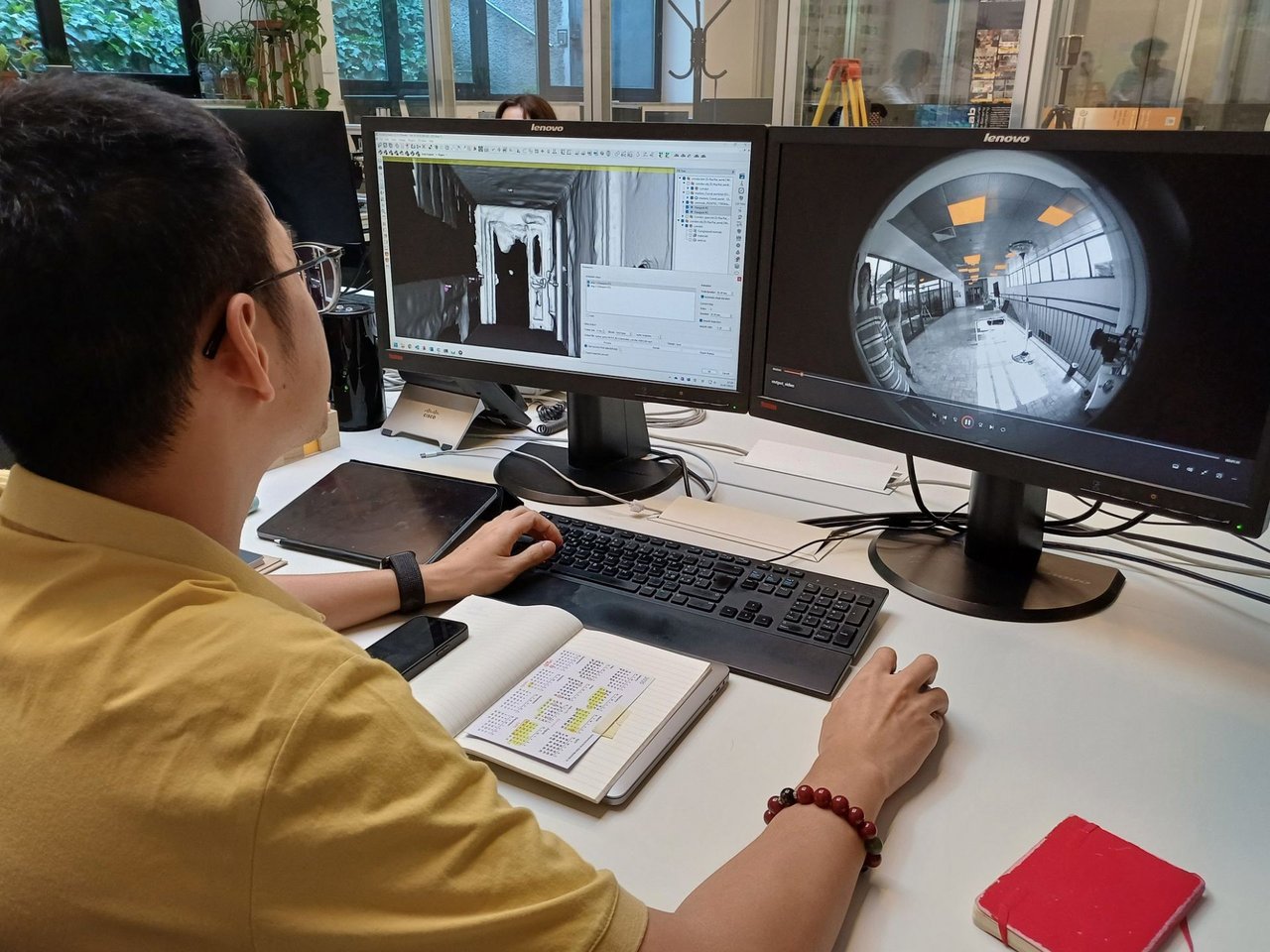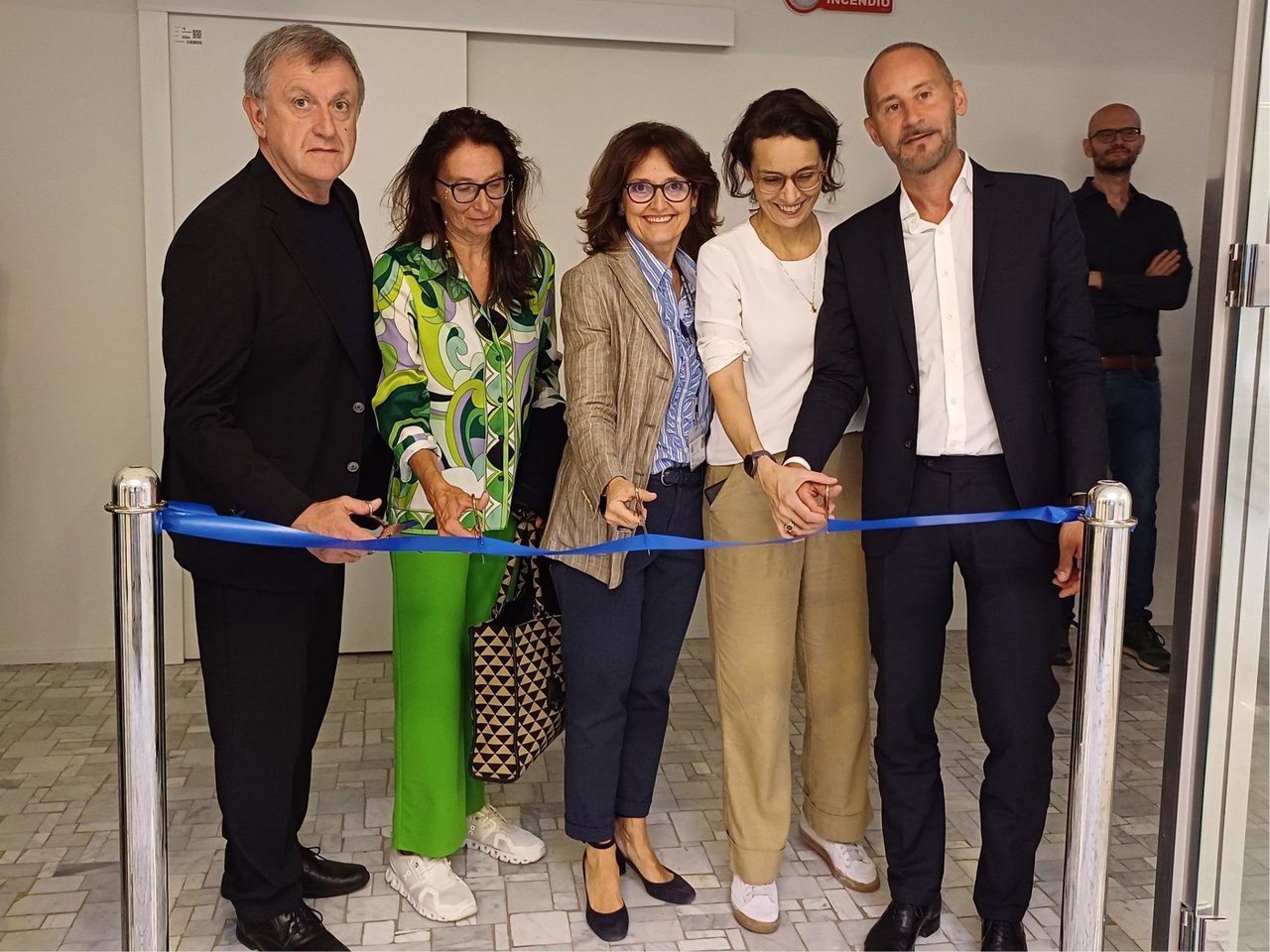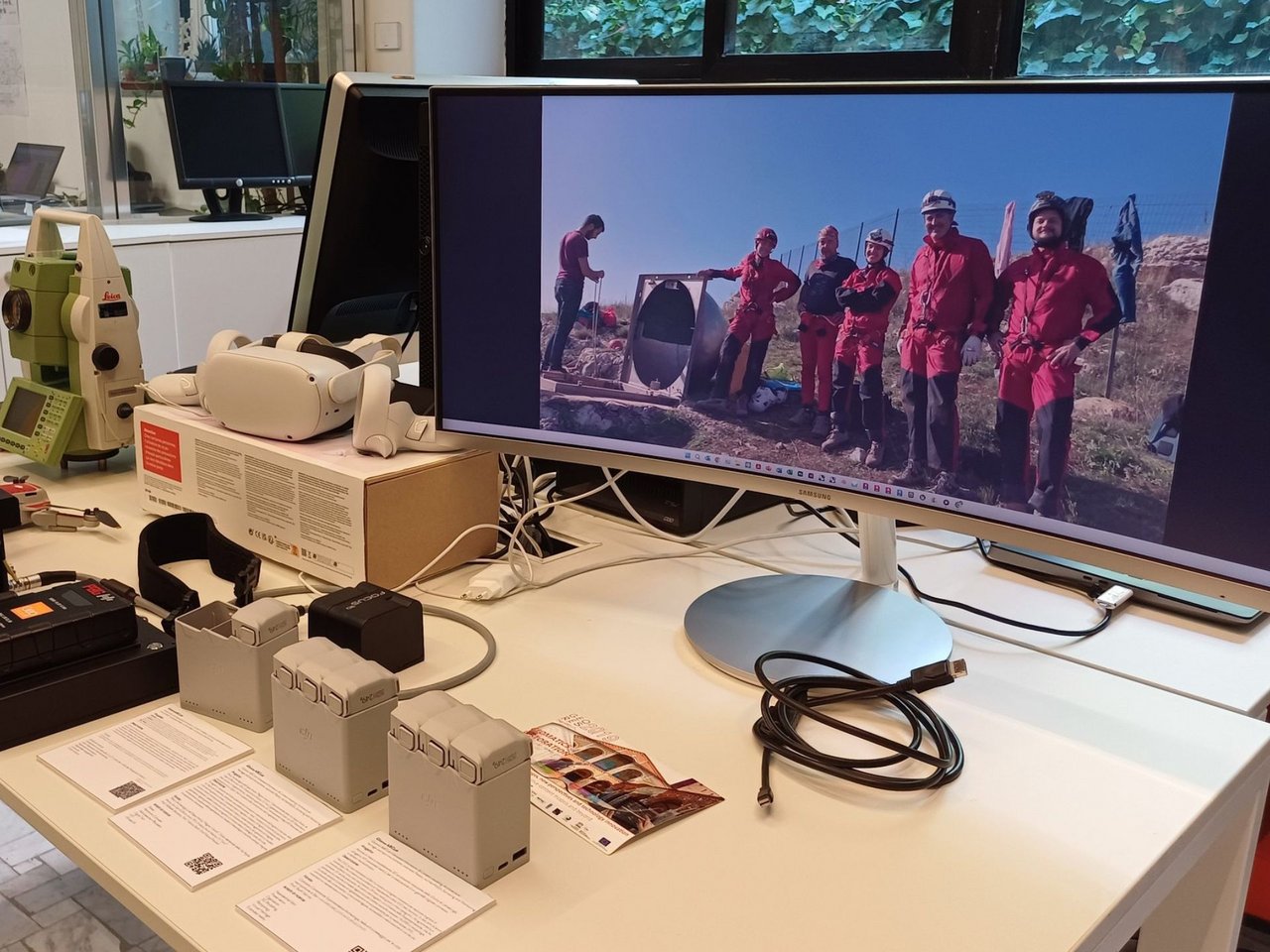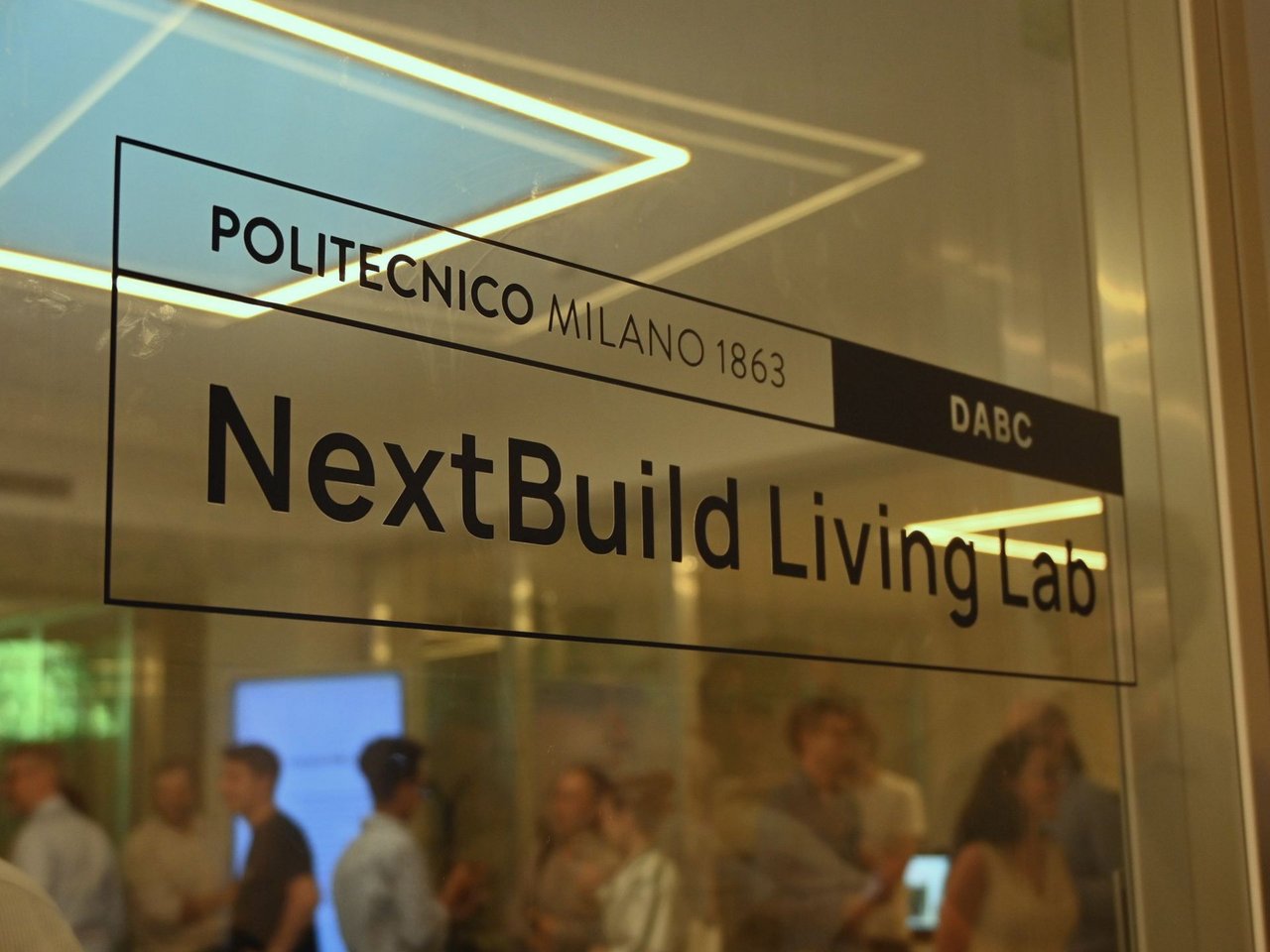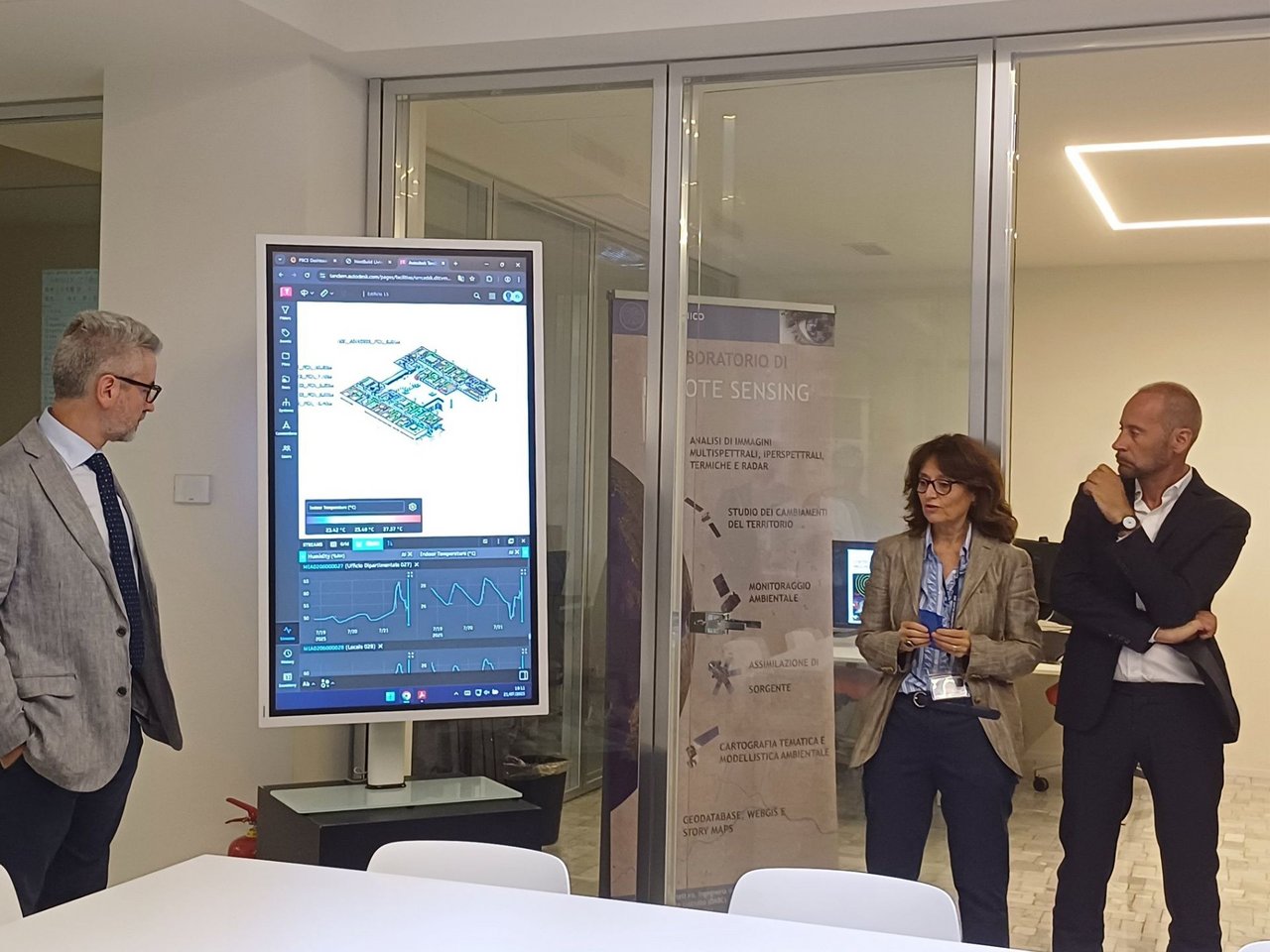NextBuild Living Lab opens
The NextBuild Living Lab, a new research infrastructure developed by the ABC Department – Architecture, Built Environment and Construction Engineering – at the Politecnico di Milano, was inaugurated. Located in the redeveloped spaces in the ABC Department on Leonardo Campus, the laboratory forms an integrated research ecosystem.
The project is conceived as an integrated platform for research on the built environment, where buildings themselves become scientific instruments. Environmental sensors, installed both indoors and outdoors, constantly measure air quality, temperature, humidity, space occupancy and energy consumption in real time. This data powers a digital twin of the building, that enables advanced simulations to improve comfort, safety, well-being and sustainability.
At the heart of the project is the user experience. Users are not only observed, but also become an active part of the research. People’s daily behaviour generates data that helps improve spaces and promote virtuous behaviour. If, for example, the sensors detect a high level of CO2 in a room, a ‘smart pop-up’ system tells the person to ventilate the room.
Today it is no longer sufficient to design high-performance buildings. We need to build spaces that can communicate with the people living there and adapt to people's real needs. The NextBuild Living Lab was created for this purpose: to turn users into actors of change at the heart of designing and managing environments.
Stefano Capolongo, Director of the Department of Architecture, Built Environment and Construction Engineering.
The project involves over 15 laboratories in the ABCLab system at the Politecnico di Milano, with skills ranging from 3D surveying to digital building management. A mobile modular structure will be built, to replicate the model in other urban and environmental contexts.
This unique infrastructure serves the sustainable transformation of the built environment, which strengthens the role of the Politecnico di Milano as a reference in research and innovation regarding the future of cities.
We are not inaugurating a laboratory, but a model to address major issues in urban sustainability, energy efficiency, building safety and social resilience. The research that comes out of environments like this is a resource for the university, the city and the territory.
Donatella Sciuto, Rector of the Politecnico di Milano.

